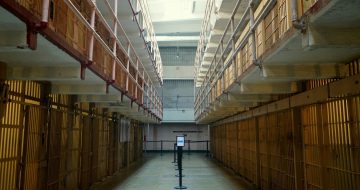University of Manchester finalist Brian Li examines the proposed amendment to the Extradition Act 2003

The UK government has proposed a draft amendment to the Extradition Act 2003 to designate Hong Kong (officially called Hong Kong Special Administrative Region, or HKSAR) as a “Category 3” territory under the Act, so future requests of extraditions, if it was approved by the Parliament, could be considered by the Court as if it were a “Category 2” country once the Home Secretary had approved a special extradition arrangement to redesignate a Category 3 territory as a Category 2 territory under s.194(3) of the Act.
Before embarking on a substantive discussion about the impacts of this draft resolution, I will briefly explain how Extradition Act 2003 designates each category:
• “Category 1 territories” refers to members of the European Union
• “Category 2 territories” refers to countries with whom UK has formal arrangements or bilateral treaties. This designation can further be divided into 2 types, A & B. Type A countries do not need to provide prima facie evidence to support requests for extradition (Hong Kong was previously a 2A Territory), while Type B countries must do so and seek the Home Secretary’s approval)
• “Category 3 territories” refers to countries which are neither Category 1 nor Category 2 territory, so requests of extradition must be processed under “special extradition arrangements.
In other words, extraditions to Hong Kong can technically be restored on some occasions since UK’s suspension of its extradition treaty with Hong Kong in 2020.
Although it might seem counter-intuitive, the “Explanatory Note” to the draft amendment tells us that “The treaty between the Government of the Hong Kong Special Administrative Region of the People’s Republic of China and the Government of the United Kingdom of Great Britain and Northern Ireland for the Surrender of Fugitive Offenders 1998 has been suspended. Consequently, there is no international agreement or arrangement in place to underpin the designation of the Hong Kong Special Administrative Region for the purposes of Part 2 of the Extradition Act 2003… Cooperation can instead take place under section 194 of the 2003 Act on a case by case basis”.
In light of HKSAR’s enactment of numerous national security legislations which have been used to suppress political opposition, and its issuing of arrest warrants against pro-democracy activists who seek refuge in the UK, the decision has been accused of “legitimising a regime that imprisons critics, silences democracy activists, and uses extradition as a tool of persecution”.
It must be noted that 300,000 Hongkongers have been granted a visa of humanitarian nature to live in Britain precisely because of those measures taken by HK’s government. In response, David Lammy and Yvette Cooper have reassured critics that this step can “complete the severing of ties between the UK and Hong Kong extradition systems by removing Hong Kong from the Extradition Act 2003” and condemned the “transnational repression” of dissidents. This article will criticise this decision of restoring extradition arrangements with Hong Kong, arguing that extraditions to a jurisdiction notorious for its relentless suppression of political opposition through lawfare can create loopholes. As a result, this article calls for the preservation of the status quo under which no extraditions are legally permitted.
Want to write for the Legal Cheek Journal?
Find out moreHong Kong’s National Security Legislations, such as the National Security Law (NSL) and the so-called “Article 23”, are rife with ambiguous provisions which can potentially be applied in a sweeping manner. As a 2024 report by Amnesty International shows, the majority of cases where NSL is reportedly applied to political speech, has constituted the violation of Article 19 of International Covenant on Civil and Political Rights (ICCPR) and the “Siracusa Principles on the Limitation and Derogation Provisions in the International Covenant on Civil and Political Rights”, under which laws limiting speech and expression for the purpose of “national security” should be proportionately applied and only be used to defend territorial integrity and political independence. For example, the so-called “47 democrats” have been charged with “conspiracy to commit subversion” under the National Security Law for their plan of holding an unofficial primary to elections and indiscriminately vetoing government’s bills, whereas an advocate of foreign sanctions on Hong Kong has been convicted of “collusion with foreign powers”. More recently, arrest warrants have been issued for 6 activists living overseas for similar offences.
Section 81 of the UK’s Extradition Act bars an extradition request if it is made for the purpose of punishing the person for their “political opinion”. Additionally, the principle of “Double Criminality” is established by Section 137, which essentially debars extraditions where the alleged offence is not punishable in the UK (such as “sedition”). Despite this, dissidents could be charged with sham offences which are ostensibly non-political in order to disguise the political motives of the prosecutorial decision.
For example, Jimmy Lai, a famous media mogul and the founder of the pro-democracy Apple Daily, was first arrested on charges of fraud before being indicted of “conspiracy to collude with foreign forces” and other sedition offences when he was in custody. If authorities in Hong Kong were to tactically seek extradition for charges which are also part of UK’s criminal law (N.B. “sedition” and “seditious libel” were abolished in England and Wales in 2009), the principle of “Double Criminality” might be circumvented.
While the decision-maker, whether the home secretary or the judge, may easily be able to discern the ulterior motive behind the requests of extraditing high-profile individuals, or those made under the NSL, the rights of low-profile activists or ordinary protestors charged under offences like public disorder or money laundering cannot be guaranteed. In fact, the Chief Executive of Hong Kong has the discretionary power of certifying as to whether what cases involve “national security” without any judicial intervention (Article 47), so a person can theoretically be charged with NSL-related offences after he has been physically extradited to Hong Kong.
The power of Hong Kong’s government to interfere with judicial independence in cases involving National Security legislation leads to a real possibility of denying dissidents the right to a fair trial. Article 44 of the NSL allows the Chief Executive of Hong Kong to designate a panel of judges to preside over cases involving “offences engendering national security” and even exercise the discretion to deprive defendants of the right to be tried by jurors, a decision which is binding on the court (Article 46).
In addition, the so-called “Committee for Safeguarding National Security of the Hong Kong Special Administrative Region” has been set up to “coordinate major work and significant operations for safeguarding national security” (Article 12) and make binding decisions regarding national security that are, again, not judicially reviewable (Article 14). These provisions, as aptly criticised by the Bar Council, “are plainly and obviously incompatible with basic principles of the rule of law”; defendants charged under the NSL cannot appoint foreign lawyers under a legally binding decision of National People’s Congress Standing Committee in Beijing, which is ostensibly a legislative body in China and nonetheless the highest appellate court in HK’s judicial system (Although Hong Kong and China are separate jurisdictions, the highest appellate court of Hong Kong is, incredibly, a governmental body of China) . I therefore argue that there is a real possibility that extraditions to HK could violate Art.6 of the ECHR due to a “flagrant denial of justice”, as defined by the ECtHR in Othman v United Kingdom, to defendants in the requesting territory (para 259):
• Conviction in absentia with no possibility subsequently to obtain a fresh determination of the merits of the charge ;
• A trial which is summary in nature and conducted with a total disregard for the rights of the defence ;
• Detention without any access to an independent and impartial tribunal to have the legality of the detention reviewed ;
• Deliberate and systematic refusal of access to a lawyer, especially for an individual detained in a foreign country
Although requests under s.194 are often granted after the home secretary has received diplomatic assurances from the requesting state as to the human rights enjoyed by the defendant, the discretion of HK’s law enforcement agencies and government to act secretively can render this protection nugatory.
In conclusion, this decision will place both pro-democracy activists and Hongkongers who have immigrated to the UK under the fear of extradition to Hong Kong. Although one hopes the judiciary in the UK would be independent and robust enough to uphold human rights, as shown in Julian Assange’s case, if the home secretary had decided to process the request of extradition, the pandora’s box that this draft amendment could open must not be swept under the carpet by the rhetoric of Ministers. We must not also forget that Ministers are subject to intense political pressure whilst making decisions involving UK’s diplomatic relationship with foreign powers. Any potential or actual human rights violations are inimical to both individuals subject to the stress of vexatious litigations, and UK’s longstanding reputation as the sanctuary of political dissidents which dates back to the 18th century. It will also set a dangerous precedent for subsequent governments to sacrifice human rights for political expediency.
Brian Li is an incoming final year LLB Student at the University of Manchester. He is an aspiring barrister with enthusiasm in human rights law and public law.
The Legal Cheek Journal is sponsored by LPC Law.



